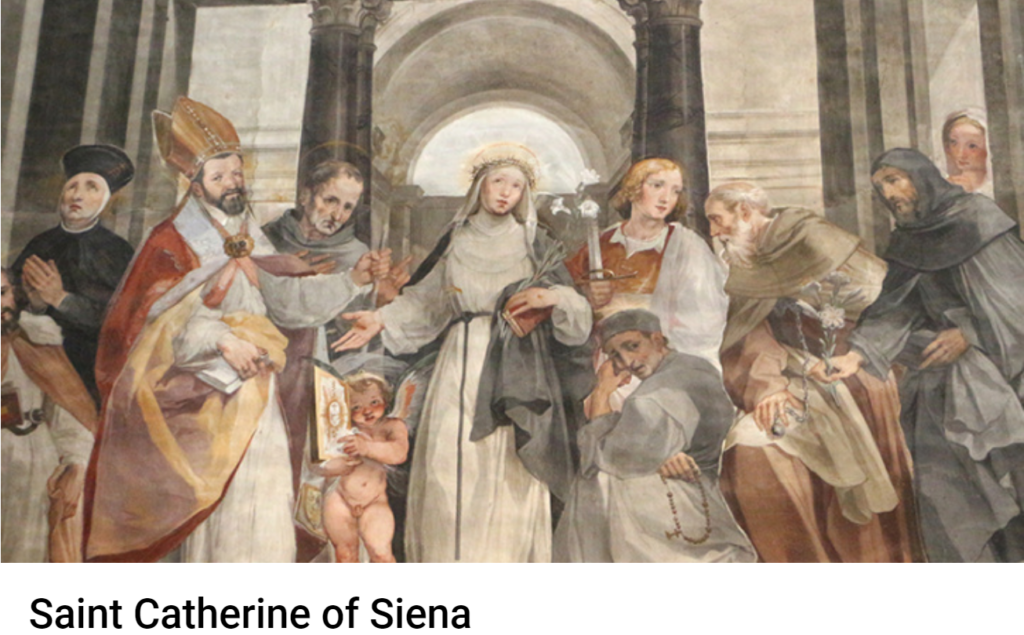
Daily Reflection – He is Near


416 N 2nd St, Albemarle, NC, 28001 | (704) 982-2910


While the work of raising a child is not always easy, Joseph’s task was even weightier. Mary and her son didn’t need just any man; they needed this one, the one whom God had chosen for them. Joseph gave himself completely to this holy undertaking. Was he aware of what was taking place? We don’t know. We do know that every opportunity Joseph had to instruct Jesus was an opportunity to grow in the knowledge of God. Imagine being the one to teach the Son of God how to use a hammer or the one to watch anxiously the first time Jesus used a saw. The work in Nazareth, while truly the stuff of ordinary life, was carried out by an extraordinary man. This work wasn’t only for Mary and Jesus but also for all women and men united with God in Christ by the power of the Holy Spirit. Joseph continues his work for us in the Church today.
— from the book Joseph, the Man Who Raised Jesus
by Fr. Gary Caster
//Franciscan Media//


The Story of Saint Joseph the Worker
To foster deep devotion to Saint Joseph among Catholics, and in response to the “May Day” celebrations for workers sponsored by Communists, Pope Pius XII instituted the feast of Saint Joseph the Worker in 1955. This feast extends the long relationship between Joseph and the cause of workers in both Catholic faith and devotion. Beginning in the Book of Genesis, the dignity of human work has long been celebrated as a participation in the creative work of God. By work, humankind both fulfills the command found in Genesis to care for the earth (Gn 2:15) and to be productive in their labors. Saint Joseph, the carpenter and foster father of Jesus, is but one example of the holiness of human labor.
Jesus, too, was a carpenter. He learned the trade from Saint Joseph and spent his early adult years working side-by-side in Joseph’s carpentry shop before leaving to pursue his ministry as preacher and healer. In his encyclical Laborem Exercens, Pope John Paul II stated: “the Church considers it her task always to call attention to the dignity and rights of those who work, to condemn situations in which that dignity and those rights are violated, and to help to guide [social] changes so as to ensure authentic progress by man and society.”
Saint Joseph is held up as a model of such work. Pius XII emphasized this when he said, “The spirit flows to you and to all men from the heart of the God-man, Savior of the world, but certainly, no worker was ever more completely and profoundly penetrated by it than the foster father of Jesus, who lived with Him in closest intimacy and community of family life and work.”
Reflection
To capture the devotion to Saint Joseph within the Catholic liturgy, in 1870, Pope Pius IX declared Saint Joseph the patron of the universal Church. In 1955, Pope Pius XII added the feast of Saint Joseph the Worker. This silent saint, who was given the noble task of caring and watching over the Virgin Mary and Jesus, now cares for and watches over the Church and models for all the dignity of human work.
//Franciscan Media//



St. Catherine calls us to be on the lookout for God. Each person will discover God in a unique way—an experience of beauty, love, forgiveness, generous sacrifice—the smile of a child, the first glimpse of the Grand Canyon, a donated organ, betrayal, persecution. In such circumstances, we stand in awe and feel infinitesimally small and unworthy. Life then truly becomes gift. Such experiences give access to Catherine’s theology. For her, God is great not simply because of God’s unimaginable goodness, but because God has chosen in love to share that goodness with creation and the human race. God pours out Godself in creation, incarnation, and Eucharist. God gifts us with every breath in every fiber of our being.
— from Accidental Theologians: Four Women Who Shaped Christianity
by Elizabeth Dreyer

Saint Catherine of Siena’s Story
The value Catherine makes central in her short life and which sounds clearly and consistently through her experience is complete surrender to Christ. What is most impressive about her is that she learns to view her surrender to her Lord as a goal to be reached through time.
She was the 23rd child of Jacopo and Lapa Benincasa and grew up as an intelligent, cheerful, and intensely religious person. Catherine disappointed her mother by cutting off her hair as a protest against being overly encouraged to improve her appearance in order to attract a husband. Her father ordered her to be left in peace, and she was given a room of her own for prayer and meditation.
She entered the Dominican Third Order at 18 and spent the next three years in seclusion, prayer, and austerity. Gradually, a group of followers gathered around her—men and women, priests and religious. An active public apostolate grew out of her contemplative life. Her letters, mostly for spiritual instruction and encouragement of her followers, began to take more and more note of public affairs. Opposition and slander resulted from her mixing fearlessly with the world and speaking with the candor and authority of one completely committed to Christ. She was cleared of all charges at the Dominican General Chapter of 1374.
Her public influence reached great heights because of her evident holiness, her membership in the Dominican Third Order, and the deep impression she made on the pope. She worked tirelessly for the crusade against the Turks and for peace between Florence and the pope.
In 1378, the Great Schism began, splitting the allegiance of Christendom between two, then three, popes and putting even saints on opposing sides. Catherine spent the last two years of her life in Rome, in prayer and pleading on behalf of the cause of Pope Urban VI and the unity of the Church. She offered herself as a victim for the Church in its agony. She died surrounded by her “children” and was canonized in 1461.
Catherine ranks high among the mystics and spiritual writers of the Church. In 1939, she and Francis of Assisi were declared co-patrons of Italy. Pope Paul VI named her and Teresa of Avila doctors of the Church in 1970. Her spiritual testament is found in The Dialogue.
Reflection
Though she lived her life in a faith experience and spirituality far different from that of our own time, Catherine of Siena stands as a companion with us on the Christian journey in her undivided effort to invite the Lord to take flesh in her own life. Events which might make us wince or chuckle or even yawn fill her biographies: a mystical experience at six, childhood betrothal to Christ, stories of harsh asceticism, her frequent ecstatic visions. Still, Catherine lived in an age which did not know the rapid change of 21st-century mobile America. The value of her life for us today lies in her recognition of holiness as a goal to be sought over the course of a lifetime.
Saint Catherine of Siena is the Patron Saint of:
Europe
Fire Prevention
Italy

“You must first have peace in your own soul before you can make peace between other people. Peaceable people accomplish more good than learned people do. Those who are passionate often can turn good into evil and readily believe the worst. But those who are honest and peaceful turn all things to good and are suspicious of no one. … It is no test of virtue to be on good terms with easy-going people, for they are always well liked. And, of course, all of us want to live in peace and prefer those who agree with us. But the real test of virtue and deserving of praise is to live at peace with the perverse, or the aggressive and those who contradict us, for this needs a great grace. … in this mortal life, our peace consists in the humble bearing of suffering and contradictions, not in being free of them, for we cannot live in this world without adversity. Those who can best suffer will enjoy the most peace, for such persons are masters of themselves, lords of the world, with Christ for their friend, and heaven as their reward.”— Thomas á Kempis, p.72-73

“While the world changes, the cross stands firm.”
— St. Bruno
